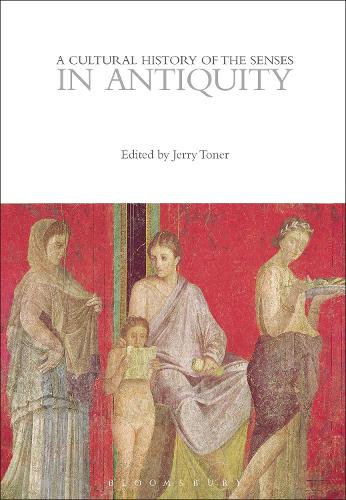
A Cultural History of the Senses in Antiquity
(Paperback)
Publishing Details
A Cultural History of the Senses in Antiquity
By (Author) Jerry Toner
Bloomsbury Publishing PLC
Bloomsbury Academic
20th September 2018
United Kingdom
Classifications
Tertiary Education
Non Fiction
History of art
Social and cultural anthropology
History of religion
Cultural studies
Sociology
152.109014
Physical Properties
Paperback
280
Width 169mm, Height 244mm
454g
Description
The ancient world used the senses to express an enormous range of cultural meanings. Indeed the senses were functionally significant in all aspects of ancient life, often in ways that were complex and interconnected. Antiquity was also a period where the senses were experienced vividly: cities stank, statues were brightly painted and literature made full use of sensory imagery to create its effects. In a steeply hierarchical world, with vast differences between the landed wealthy, the poor and the slaves, the senses played a key role in establishing and maintaining boundaries between social groups; but the use of the senses in the ancient world was not static. New religions, such as Christianity, developed their own way of using the senses, acquiring unique forms of sensory-related symbolism in processes which were slow and often contested. The aim of this volume is to provide an overview of these structures and developments and to show how their study can yield a more nuanced understanding of the ancient world. A Cultural History of the Senses in Antiquity presents essays on the following topics: the social life of the senses; urban sensations; the senses in the marketplace; the senses in religion; the senses in philosophy and science; medicine and the senses; the senses in literature; art and the senses; and sensory media.
Reviews
As part of Classens larger series, the book will be a desirable addition to student-focused libraries ... Toners volume succeeds in demonstrating how antiquity ... was a period when the senses were experienced vividly". * Canadian Journal of History/Annales canadiennes dhistoire *
Author Bio
Jerry Toner is Fellow and Director of Studies in Classics at Churchill College, University of Cambridge, UK. He is the author of Leisure and Ancient Rome (1995), Popular Culture in Ancient Rome (2009), Homer's Turk: How Classics Shaped Ideas of the East (2013) and Roman Disasters (2013).
